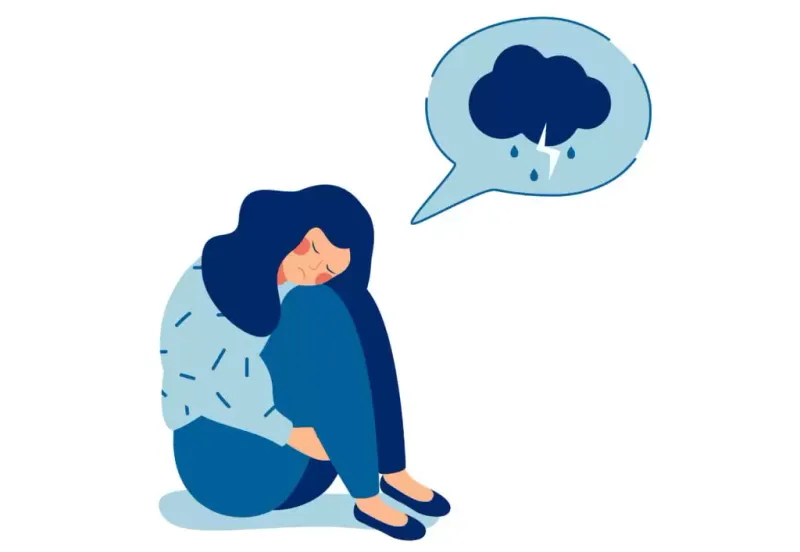17 Concrete Signs Your Parents Didn’t Pay Enough Attention To You As A Child
Parental neglect can cast a long shadow, subtly shaping who we become as adults. The absence of sufficient attention and emotional support during childhood often manifests in various behavioral patterns that persist into our adult lives.
Recognizing these signs can be the first step towards healing and understanding oneself better. This guide explores 17 concrete signs that may hint at an upbringing where parental attention was lacking, providing insight into how these childhood experiences continue to influence adult behavior.
1. You constantly seek validation from others

Seeking validation from others often stems from a childhood where affirmations were rare. As an adult, you might notice a heightened sensitivity to others’ opinions, especially online. In many cases, this can lead to a dependency on social media likes and comments as a source of self-worth.
You may find yourself excessively worrying about how others perceive you, causing stress and anxiety. This constant need for external approval can become exhausting, affecting self-esteem and confidence. Recognizing this pattern is crucial for breaking free from the cycle.
Building self-acceptance and understanding that your worth isn’t dictated by others’ judgments is key to overcoming this challenge. Developing self-validation skills can empower you to trust your own opinions and feelings.
2. You feel uncomfortable with compliments

Compliments can feel like a spotlight beaming down, uncomfortably bright and revealing. If you shy away or deflect praise, it might hint at an upbringing where positive reinforcement was scarce. This discomfort stems from a lack of familiarity with receiving acknowledgment.
For those who grew up without enough parental affirmation, compliments can trigger discomfort. This reaction is rooted in disbelief or fear of not measuring up. You might question the sincerity of the compliment or whether you truly deserve it.
Learning to graciously accept compliments is part of building healthier self-esteem. Acknowledging your strengths and achievements can help bridge the gap between external perceptions and internal self-assessment.
3. You over-apologize—even when it’s not your fault

The habit of over-apologizing often indicates a childhood where fault and blame were disproportionately assigned. An environment where you felt responsible for maintaining peace or where mistakes were harshly criticized can lead to this behavior.
As an adult, you might find yourself apologizing for things out of your control, or excessively saying sorry to avoid confrontation. This behavior stems from an ingrained fear of disappointing others or being seen as inadequate.
Recognizing this pattern is the first step towards change. Understanding that not everything is your fault, and that it’s okay to stand your ground, is crucial in building assertiveness and self-confidence.
4. You struggle to ask for help

Asking for help can feel like admitting weakness, especially if you grew up in an environment where self-sufficiency was overly emphasized. Children who lacked guidance may internalize the belief that they must handle everything on their own.
In adulthood, this manifests as reluctance to seek assistance, even when overwhelmed. Fear of being a burden or judged for not being capable enough often underpins this struggle. It prevents forming supportive relationships, as independence is overvalued.
Learning to ask for help is an important step in fostering connections and acknowledging that vulnerability is a natural part of human experience. It allows for growth and strengthens interpersonal bonds.
5. You often feel like a burden

Feeling like a burden is a heavy weight to carry, often rooted in a childhood where emotional needs were ignored. If your expressions of need were dismissed or met with irritation, this feeling can persist into adulthood.
You might notice a tendency to withdraw or hesitate to share problems, fearing they will inconvenience others. This belief can lead to isolation, as you attempt to manage everything silently.
Recognizing that you are not a burden is essential for building healthy relationships. Embracing the idea that others genuinely care and want to help can alleviate this internalized notion, allowing for deeper connections and support.
6. Your achievements never feel like enough

For those who grew up without adequate encouragement, achievements can feel hollow. No matter how many accolades you earn, there might be an underlying feeling of inadequacy, as if you are forever chasing an elusive sense of worth.
You might set exceedingly high standards for yourself, driven by a need to prove your value. However, each success may be met with fleeting satisfaction, quickly overshadowed by a new goal or self-criticism.
Understanding that self-worth isn’t measured by accomplishments is vital. Appreciating the journey and recognizing personal growth can help fill the void that mere achievements cannot.
7. You over-function in relationships

Over-functioning in relationships often results from a childhood where approval was conditional. You may feel compelled to manage everything, taking on more than your fair share to ensure love and acceptance.
This can lead to burnout, as you prioritize others’ needs over your own. In relationships, this imbalance creates dependency, where your partner might lean on you excessively while you suppress your needs.
Reevaluating your role and asserting your own needs is crucial for healthier dynamics. It’s important to realize that your value isn’t tied to how much you do for others, and that mutual support is the foundation of any relationship.
8. You rarely express your needs

If expressing needs was met with dismissal or disapproval during childhood, you might have learned to suppress them entirely. In adulthood, this translates to a reluctance to voice what you truly want or need, fearing rejection or conflict.
You may convince yourself that your needs are unimportant or burdensome to others. This can lead to frustration and resentment, as your silent needs go unmet, stifling personal and relational growth.
Finding your voice is a crucial step towards self-empowerment. Embracing the belief that your needs matter and deserve to be heard can transform your relationships and enhance self-satisfaction.
9. You feel guilty when resting

Guilt when resting is a common trait among those who experienced conditional love or praise. If you were valued only for your productivity, relaxation might feel like a betrayal of those standards.
As an adult, taking breaks can trigger anxiety, as if you’re wasting time or failing to meet expectations. This guilt-driven behavior often leads to burnout, as rest is sacrificed in favor of constant activity.
Recognizing rest as a vital component of well-being is crucial. Allowing yourself the grace to recharge not only benefits physical health but also enhances creativity and emotional resilience.
10. You have trouble trusting others

Cuestiones de confianza can often be traced back to childhood environments where reliability was lacking. If caregivers were inconsistent or emotionally unavailable, trusting others becomes a complex challenge.
In adulthood, you might be wary of letting people get too close, fearing betrayal or disappointment. This guardedness protects you from potential hurt but also isolates you from meaningful connections.
Building trust requires patience and vulnerability. Allowing yourself to gradually open up and offering trust incrementally can foster stronger bonds and a sense of security in relationships.
11. You downplay your own pain

Downplaying pain often starts in environments where emotions were dismissed or belittled. If expressing hurt was seen as weakness, you might have learned to minimize your feelings to appear resilient.
This tendency can lead to ignoring your own needs, both physical and emotional, as you prioritize appearing strong. In relationships, this may result in others underestimating your struggles, leaving you without support.
Acknowledging your pain and allowing vulnerability is crucial for healing. Accepting that it’s okay to ask for help and express discomfort can lead to healthier coping mechanisms and stronger relationships.
12. You find it easier to support others than be supported

Supporting others is often easier for those who grew up needing to be self-reliant. If your emotional needs were unmet, you might have become adept at caring for others instead.
As an adult, you might feel uneasy accepting support or worry about being seen as needy. This dynamic can hinder reciprocal relationships, where you give more than you receive.
Learning to accept support is vital for balanced relationships. Embracing the idea that you deserve care and compassion just as much as anyone else can lead to healthier, more fulfilling connections.
13. You get anxious when people give you attention

Anxiety in response to attention often develops in environments where visibility led to criticism or pressure. If childhood attention was negative or overwhelming, it can create a fear of scrutiny.
As an adult, you might feel exposed or judged when people focus on you, triggering anxiety. This can lead to avoidance of situations where you are the center of attention, limiting personal and professional growth opportunities.
Understanding the roots of this anxiety and gradually facing these situations can build confidence. Embracing positive attention and learning to enjoy recognition can enhance self-esteem and open new avenues.
14. You gravitate toward emotionally unavailable people

Attraction to emotionally unavailable people often mirrors early familial relationships. If caregivers were distant or inconsistent, you might seek familiar dynamics in adulthood, hoping to heal old wounds.
In these relationships, you might find yourself repeatedly trying to bridge emotional gaps, often at the cost of your own needs. This pattern can perpetuate cycles of longing and dissatisfaction.
Recognizing these tendencies and seeking partners who are emotionally available and supportive is crucial for healthier relationships. Understanding that you deserve a mutually fulfilling partnership can break this cycle.
15. You’re always waiting for the “other shoe to drop”

Constantly anticipating disaster can be traced to unpredictable childhood environments. If security was inconsistent, you might have learned to expect disappointment or disruption as a defense mechanism.
This hyper-vigilance can prevent you from fully enjoying positive moments, as you’re always bracing for potential negativity. It can affect relationships, as partners might perceive you as pessimistic or detached.
Learning to trust in stability and embrace positivity can ease this anxiety. Building confidence in predictable patterns and savoring joyful experiences can shift focus from fear to fulfillment.
16. You’ve never felt truly “safe” with anyone

A perpetual sense of insecurity often arises from childhoods lacking emotional safety. If emotional expression was discouraged or met with judgment, feeling secure with others becomes elusive.
This can manifest as chronic loneliness, even in the presence of others. You might struggle to open up and form deep connections, always wary of potential judgment or abandonment.
Building a sense of security starts with trust in yourself and others. Gradually allowing vulnerability and seeking safe spaces for emotional expression can nurture a sense of belonging and reduce isolation.
17. You confuse control with love

Confusing control with love can stem from environments where affection was conditional. If love was given based on behavior or achievements, you might equate control or manipulation with affection.
As an adult, this can lead to seeking or maintaining controlling dynamics in relationships, mistaking them for care or devotion. This can stifle personal growth and create unhealthy dependencies.
Understanding that genuine love is respectful and liberating is crucial. Embracing relationships that foster mutual respect and freedom can lead to more fulfilling and empowering connections.







